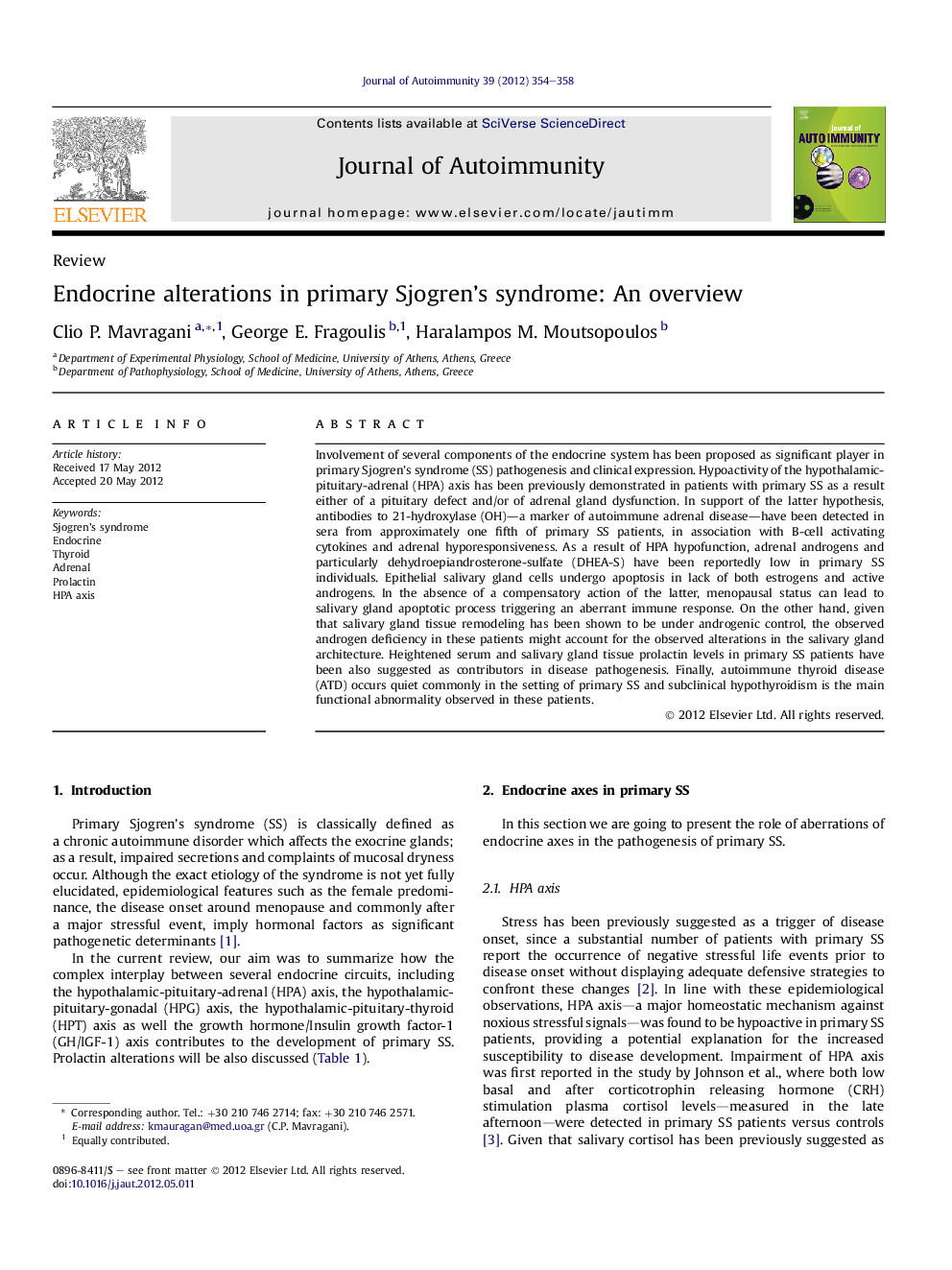| Article ID | Journal | Published Year | Pages | File Type |
|---|---|---|---|---|
| 6119357 | Journal of Autoimmunity | 2012 | 5 Pages |
Involvement of several components of the endocrine system has been proposed as significant player in primary Sjogren's syndrome (SS) pathogenesis and clinical expression. Hypoactivity of the hypothalamic-pituitary-adrenal (HPA) axis has been previously demonstrated in patients with primary SS as a result either of a pituitary defect and/or of adrenal gland dysfunction. In support of the latter hypothesis, antibodies to 21-hydroxylase (OH)-a marker of autoimmune adrenal disease-have been detected in sera from approximately one fifth of primary SS patients, in association with B-cell activating cytokines and adrenal hyporesponsiveness. As a result of HPA hypofunction, adrenal androgens and particularly dehydroepiandrosterone-sulfate (DHEA-S) have been reportedly low in primary SS individuals. Epithelial salivary gland cells undergo apoptosis in lack of both estrogens and active androgens. In the absence of a compensatory action of the latter, menopausal status can lead to salivary gland apoptotic process triggering an aberrant immune response. On the other hand, given that salivary gland tissue remodeling has been shown to be under androgenic control, the observed androgen deficiency in these patients might account for the observed alterations in the salivary gland architecture. Heightened serum and salivary gland tissue prolactin levels in primary SS patients have been also suggested as contributors in disease pathogenesis. Finally, autoimmune thyroid disease (ATD) occurs quiet commonly in the setting of primary SS and subclinical hypothyroidism is the main functional abnormality observed in these patients.
⺠Hypothalamic-pituitary-adrenal axis is hypoactive in SS. ⺠Anti-21(OH) Abs in some SS patients are associated with adrenal hyporesponsiveness. ⺠Lack of both estrogens and active androgens favor apoptosis and immune triggering. ⺠Autoimmune thyroiditis is the most common endocrine dysfunction observed in SS. ⺠Prolactin is increased in a subset of SS patients in association with B-cell hyperactivity.
